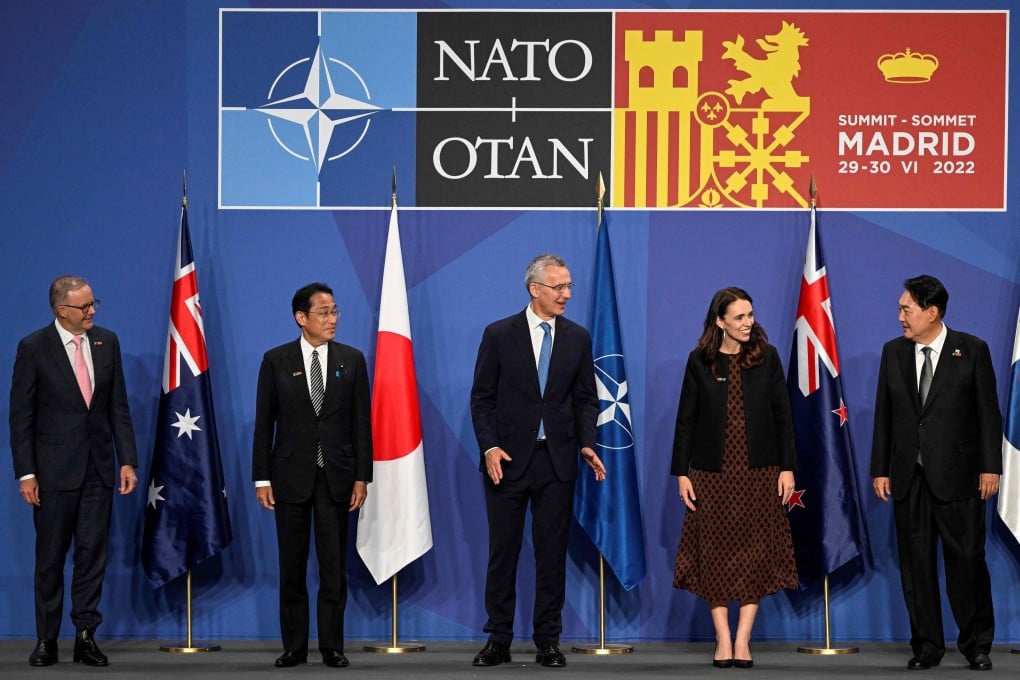Advertisement
Asia-Pacific leaders at Nato summit a sign of strategic shift amid Russia, China threats: analysts
- Australia, Japan, New Zealand and South Korea are not Nato members but are global partners of the military alliance
- Experts say their attendance suggests the US-China rivalry has turned into one between the West and China, and can be seen as a ‘new multilateral framework for security in the Indo-Pacific’
Reading Time:4 minutes
Why you can trust SCMP
63

The first-ever attendance of four Asia-Pacific leaders at last week’s Nato summit is a clear sign a strategic shift in alliance has occurred among key countries in the region and even turned the US-China competition into one between the West and China, analysts said.
Disputing Beijing’s assertion that Washington had engineered Nato’s Asia-Pacific expansion, experts said it was Russia’s invasion of Ukraine and China’s growing aggression that had brought the region’s leaders into seeking closer alignment with their European counterparts.
In a statement on June 30, the White House said the inclusion of leaders from Japan, South Korea, Australia and New Zealand at the Nato summit in Madrid had provided the opportunity to “strengthen the rules-based international order”.
During the summit, Japanese Prime Minister Fumio Kishida said Tokyo intended to significantly upgrade its partnership with Nato, pointing out that the security of Europe was inseparable from that of Asia.
South Korean President Yoon Suk-yeol warned of the threat to universal values at a time of new conflict and competition, referring to Russia’s aggression in Ukraine and Beijing’s engagement with Moscow.
Australia’s new leader Anthony Albanese backed Nato’s accusation that China was colluding with Russia, while New Zealand’s Jacinda Ardern urged democratic nations to stand firm as China became “more assertive” and “willing to challenge international rules and norms”.

At the end of the meeting, Nato allies agreed for the first time to include challenges and threats posed by China into the alliance’s strategic blueprint, arguing that Beijing’s ambitions and its “coercive policies” were challenging the Western bloc’s “interests, security and values”.
Advertisement